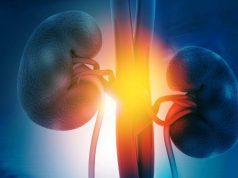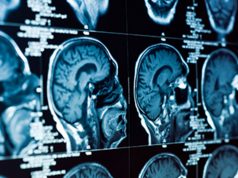Twelve percent of those with neurologic involvement develop life-threatening conditions associated with COVID-19
MONDAY, March 8, 2021 (HealthDay News) — For children with COVID-19-related hospitalization, neurologic involvement is common and is usually transient, according to a study published online March 5 in JAMA Neurology.
Kerri L. LaRovere, M.D., from Boston Children’s Hospital, and colleagues examined the range and severity of neurologic involvement associated with severe acute respiratory syndrome coronavirus 2 in children and adolescents in a case series of patients hospitalized with acute COVID-19 or multisystem inflammatory syndrome in children (MIS-C) between March 15 and December 15, 2020. Data were included for 1,695 patients at 61 U.S. hospitals.
The researchers found that 365 patients (22 percent) from 52 sites had documented neurologic involvement. Compared with those without neurologic involvement, patients with neurologic involvement were more likely to have underlying neurologic disorders (22 versus 8 percent); a similar number were previously healthy (53 versus 54 percent) and met criteria for MIS-C (35 versus 37 percent). Eighty-eight percent of those with neurologic involvement had transient symptoms and survived, while 12 percent developed life-threatening conditions that were clinically adjudicated to be associated with COVID-19, including severe encephalopathy, stroke, central nervous system infection/demyelination, Guillain-Barré syndrome/variants, and acute fulminant cerebral edema. Those with life-threatening neurologic conditions had higher neutrophil-to-lymphocyte ratios and higher reported frequency of D-dimer greater than 3 µg/mL fibrinogen equivalent units. Of the 43 patients who developed COVID-19-related life-threatening neurologic involvement, 11 patients died and 17 survivors had new neurologic deficits at hospital discharge.
“Future immunologic studies of cell-mediated and cytokine immune responses in young individuals may provide insight into the pathogenesis of neurologic disease in COVID-19 and MIS-C,” the authors write.
Several authors disclosed financial ties to the pharmaceutical and medical technology industries.
Copyright © 2020 HealthDay. All rights reserved.








